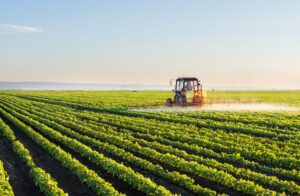
PJSC Zaporizhkox, one of Ukraine’s largest producers of coke and chemical products and part of the Metinvest Group, increased its blast furnace coke production by 2.7% in 2025 compared to 2024, from 874,700 tons to 898,300 tons.
According to the company, 73,300 tons of coke were produced in December, compared to 76,300 tons in the previous month.
As reported, Zaporizhkox increased its blast furnace coke production by 2.1% in 2024 compared to 2023, to 874,700 tons from 856,800 tons.
In 2023, Zaporizhkox increased its output of blast furnace coke by 16% compared to 2022, to 856,800 tons from 737,400 tons.
Zaporizhkox has a complete technological cycle for the processing of coke-chemical products.
Metinvest is a vertically integrated mining group of companies. Its main shareholders are SCM Group (71.24%) and Smart Holding (23.76%). Metinvest Holding LLC is the managing company of the Metinvest Group.

JSC Tascombank has put up for auction the Slobozhanska Budivelnaya Keramika (SBK) porous ceramic block factory in the Kyiv region on the OpenMarket electronic platform (SE “SETAM” of the Ministry of Justice), according to the SETAM press service.
The auction for the Kyiv branch of SBK is scheduled for January 2, 2026, with applications accepted until January 1 and a starting price of UAH 76.8 million. The property is located in the Kyiv region, Borodianka district, village of Ozery.
The lot includes a production complex with a total area of 15,906.4 square meters, 212 units of industrial equipment, and a land plot.
The sale includes the right to conclude a financial leasing agreement and a purchase and sale agreement for real estate and movable property belonging to the bank.
Auction details and terms of participation are available at: is.gd/Jr3aDv
The OpenMarket electronic auction has been operating in Ukraine since 2014 and is a convenient tool for purchasing and selling property online. In total, assets worth over UAH 26.7 billion have already been sold through the system.
AUCTION, building ceramics, FACTORY, PRODUCTION, TASCOMBANK, СБК

Agricultural production in Ukraine fell by 6.6% in January-November 2025 compared to the same period last year, according to the State Statistics Service.
Thus, according to the results of 11 months of this year, the agricultural production index was 93.4% compared to January-November last year. In particular, the indicator for crop production reached 92.7%, and for livestock production – 96.2%.
Agricultural enterprises suffered slightly greater losses, with production at 93.2% of last year’s level. At the same time, the indicator for crop production reached 92.0%, and for livestock production – 100%. At the same time, the indicator for private farms was 93.7%. For crop production, it was 99.8%, and for livestock production, 90.4%.
The largest decline in production was recorded in the Donetsk region, where this index was 57.4% of last year’s level. There was also a significant decline in the Kherson (70.1%) and Dnipropetrovsk (79.3%) regions.
At the same time, two regions showed positive dynamics: in the Chernihiv region, the agricultural production index rose to 102.2%, and in the Vinnytsia region, to 101.6%.

The Dnipro-based Sol Union group of companies has begun construction of the Neo Food System factory in the Kyiv region. The project capacity of the enterprise will allow it to produce 60,000 ready-made meals per day. The factory will produce ready-to-eat chilled, pasteurized, sterilized, and deep-frozen meals. The group’s investment in this project amounts to UAH 220 million.
This was announced by Dmytro Kysilevsky, Deputy Chairman of the Verkhovna Rada Committee on Economic Development. He noted that Sol Union took advantage of several programs of the “Made in Ukraine” policy for the development of Ukrainian manufacturers to implement its current investment projects. In particular, the group took advantage of a state grant of UAH 8 million for processing, purchasing autoclaves manufactured by the Rozfood plant in Kyiv. In addition, the group attracted loans from the “5-7-9” program. It plans to further expand its loan portfolio.
The launch of the plant will create 260 new jobs in the Kyiv region. The production area is 4,000 square meters.
To implement the Neo Food System factory project, the group purchased a ready-made industrial premises that already has the necessary connected electricity, water supply, treatment facilities, and drainage. The installation of the enterprise’s equipment will begin in April 2026. The launch of production is scheduled for June, and the project is expected to reach its design capacity in September 2026. The first exports to EU countries are planned for 2027.
The Sol Union group of companies includes two food production and packaging factories, a vegetable storage facility with a capacity of 5,000 tons, and warehouses with a total area of 17,000 square meters. Until now, all of the group’s enterprises were located in Dnipro.
The “Made in Ukraine” development policy for Ukrainian manufacturers combines state programs aimed at developing production, attracting investment, and stimulating exports.
FACTORY, FOOD, Kysilevsky, PRODUCTION, semi-finished product